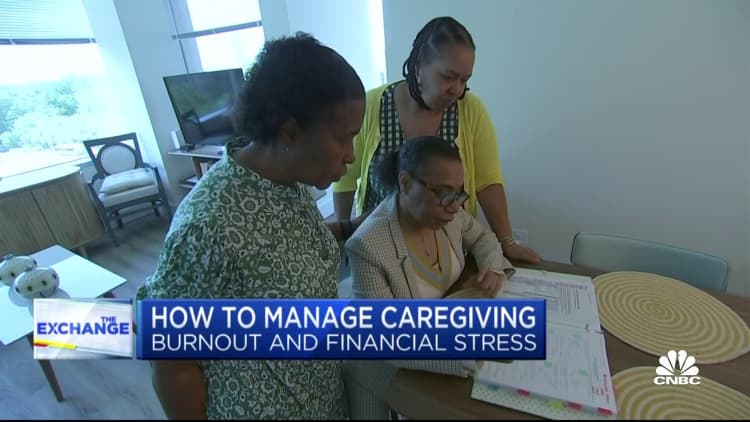Ivory Johnson, Sr., and Catherine Johnson
Courtesy Ivory Johnson
Dementia, according to the Mayo Clinic, is an umbrella term used to describe a group of symptoms affecting memory, thinking and social abilities and is caused most often by Alzheimer’s disease.
Alzheimer’s affects 1 in 9 Americans age 65 and older — an estimated 6.7 million people, about twice the population of Arkansas.
I often address elder care planning in my capacity as a financial advisor, because health-care expenses add up during retirement, some more than others, and in the case of my family it can seemingly happen overnight. My father went from playing golf with his buddies in 2020 to requiring around-the-clock care just two years later.
This is not something I read in a textbook — I bear witness to how dementia affects responsible people who thought they had everything figured out.
Care costs can swiftly deplete savings
A memory care center for dementia patients in northern Florida costs my family $6,700 a month. In Washington, D.C., where I live now, until I’m forced to relocate, that same facility would cost twice as much. My dad may be among the 6.7 million Americans living with dementia, but it is my aging mother who must now watch her retirement savings evaporate one monthly payment at a time.
Planning is not solely about us, but also the spouse and the children who must make difficult and often heartbreaking decisions about their loved one.

Even those who have properly saved for retirement will see their accounts dwindle with all deliberate speed. After all, withdrawing $10,000 or more each month net of taxes to pay for a facility can devastate even the most responsible among the middle class.
Medicaid will provide a nursing home if you run out of money, after the children have exhausted their own savings, but these facilities do not resemble the lifestyle you have likely become accustomed to. Moreover, the quality gap of a state-provided at-home nurse versus a private-pay service may be just as cavernous and unsettling.
Proactive moves may help
Ivory Johnson with his father, Ivory Johnson, Sr.
Courtesy Ivory Johnson
There are two ways to protect your family and your finances from this awful disease.
First, there are long-term care insurance policies that will pay for care once you are unable to perform two of six assisted daily living activities without assistance such as bathing or showering, dressing, getting in and out of bed or a chair, walking, using the toilet and eating.
A policy can come in the form of straight long-term care insurance or as a hybrid life insurance policy. The former is less expensive with premiums that can be increased by the insurance company, while the latter has a death benefit if you never need long term care and premiums that cannot be increased, and as a result are more expensive.
For instance, in 2022, the average annual premium for a straight long-term care insurance policy that pays $165,000 in benefits with a 5% inflation provision was $3,800 and $6,600 respectively for an average 60-year-old male and female, according to data from the American Association for Long-Term Care Insurance.
In contrast, a healthy 65-year-old client of mine purchased a hybrid long-term care policy with a $250,000 death benefit that would pay $200,000 in long-term care benefits, for $6,000 a year in premiums. As with all insurance, your health status will be reflected in the cost of coverage.
Second, from a health standpoint, you can exercise, eat a more balanced diet, and attempt to reduce the stress that sends cortisol throughout the body. If one were to forecast future dementia diagnoses, they would only need to review the high-glucose diet many Americans consume.
In fact, recent research by Dr. Dale Bredesen, author of “The End of Alzheimer’s,” suggests that chronic inflammation from stress, diet and other lifestyle choices may play a role in how plaque builds up in the brain. Good health habits offer no guarantee that you won’t get dementia, but there’s reason to believe it will increase your odds of a favorable outcome.
Once you consider the costs and the energy required to navigate dementia, a proactive attempt to prevent the wrath of this disease is not only sensible, but financially responsible.
— By Ivory Johnson, certified financial planner and the founder of Delancey Wealth Management in Washington, D.C. He is a member of the CNBC Financial Advisor Council.

